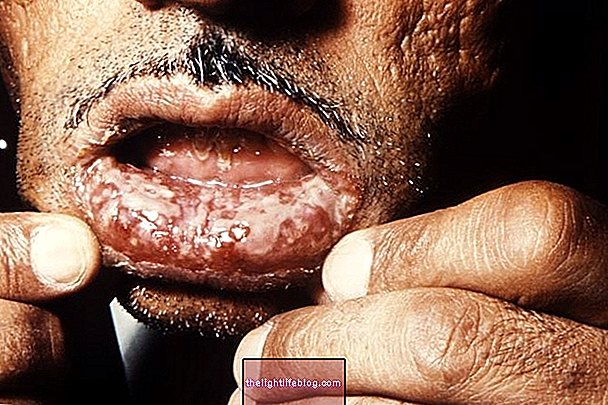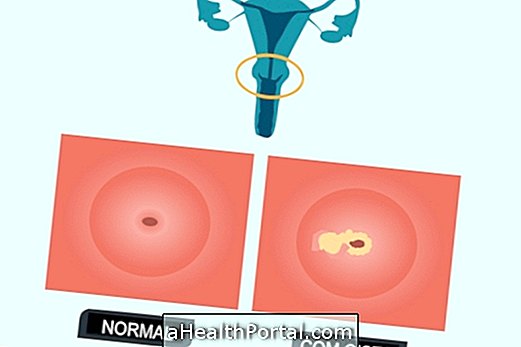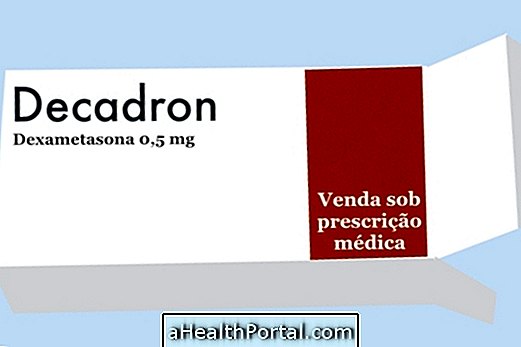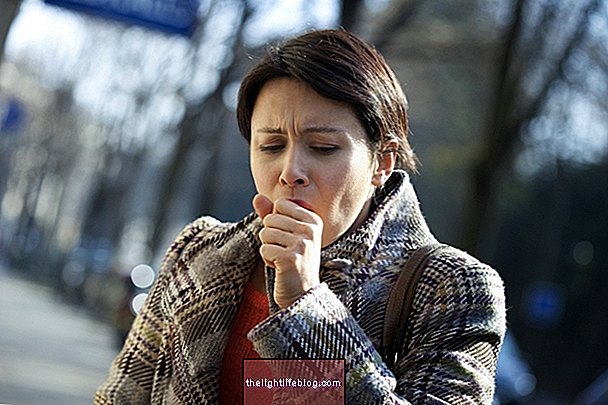Choking is a rare situation, but it can be life-threatening, since it can clog the airways and prevent air from reaching the lungs. Some situations that may cause someone to choke are:
- Drinking liquids too fast;
- Do not chew the food properly;
- Eat lying down or lying down;
- Swallow chewing gum or candy;
- Swallow small objects such as toy parts, pen caps, small piles or coins.
Foods that are most at risk of choking are bread, meat, and grains such as beans, rice, corn, or peas, so they should be well-chewed before swallowing so they will not be stuck in the throat or go to the airways.
Although in most cases, choking goes on after coughing, there are more serious situations in which the cough can not push what is stopping breathing. In these cases, the choked person is very difficult to breathe, his face is purple and may even faint. Here's what to do when someone chokes:

What can cause frequent choking
Frequent choking, saliva, or even water is a condition known as dysphagia, which occurs when relaxation, weakening, and incoordination of the muscles used to swallow.
Although it is more common in the elderly, due to natural aging, dysphagia can also occur in younger people, but in these cases it can have several causes, from simple problems like reflux, to more serious situations, such as neurological problems or even cancer of the throat. Learn more about dysphagia and how to treat it.
Thus, whenever one identifies that one is choking very frequently it is important to go to the general practitioner to evaluate the symptoms and identify the problem, initiating the most appropriate treatment.
How to avoid getting choked
Choking is more common in children, so in these cases it is recommended:
- Do not offer too hard foods or foods that are difficult to chew;
- Cut the food into small pieces so they can be swallowed whole if necessary;
- Teach the child to chew food well before swallowing;
- Do not buy toys with very small parts that can be swallowed;
- Avoid storing small objects, such as buttons or batteries, in places easily accessible to the child;
- Do not let your child play with party balloons without adult supervision.
However, choking can also happen in adults and the elderly, and in these cases, the most important tips are to cut the food into small pieces, chew well before swallowing, put little food in the mouth and identify if there are loose parts on dentures or dental appliances, for example.
In the case of people who can not chew properly or are bedridden, care should be taken with the type of diet, since the use of solid foods can easily cause choking. Here's how to feed people who can not chew.
























